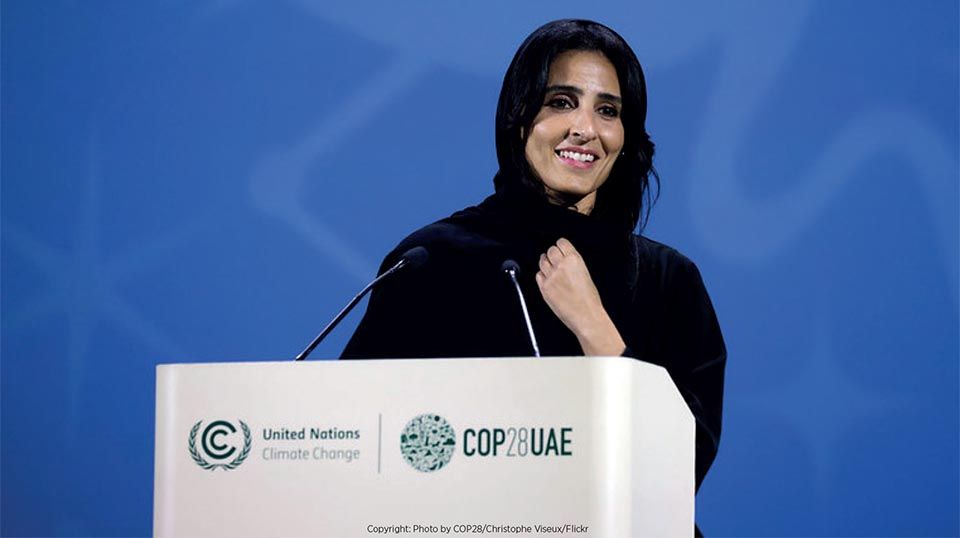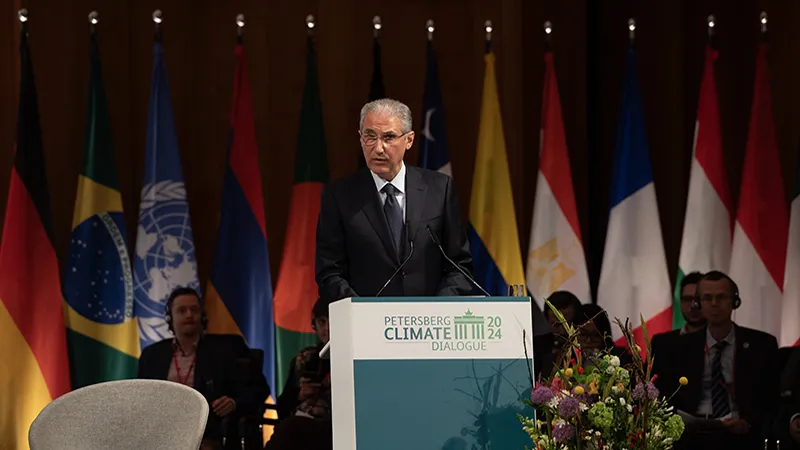A new partnership was launched on Gender Equality Day at COP28 with the aim of protecting women’s livelihoods and supporting their economic empowerment.
The COP28 Gender-Responsive Just Transitions & Climate Action Partnership includes a package of measures centred around three core pillars:
- Improve quality of data to support decision making in transition planning
- More effective finance flows to regions most impacted by climate change
- Ensure access to education, skills and capacity building to support individual engagement in transitions
Research shows 1.2 billion jobs – 40% of the global labour force – are at risk due to global warming and environmental degradation according to the International Labour Organisation (ILO). Women make up the majority of those working in sectors susceptible to climate change, highlighting the urgency of this partnership.
UN climate change high level champion, Razan Khalifa Al Mubarak (pictured), commented at the launch event: “Climate change is not gender neutral – it disproportionately impacts women and girls. Already, the climate crisis amplifies existing gender inequalities and poses a serious threat to women’s livelihoods, health and wellbeing.
“To deliver a just transition, we must reform the architecture of the global financial system and ensure finance flows to the regions and the people who need it the most. But we must also invest in women’s economic empowerment to ensure no one is left behind.”
The partnership was endorsed by over 60 parties, including the UK, US, France, Germany, Australia, China, and Spain. It includes agreements that signatories will implement over the next three years before reconvening at COP31.
It was also highlighted in a statement that by mid-century, climate change could push up to 158 million more women and girls into poverty globally. This is 16 million more than the total number of men and boys.
The new partnership builds on objectives outlined in the United Nations Framework Convention on Climate Change (UNFCCC) Gender Action Plan.





